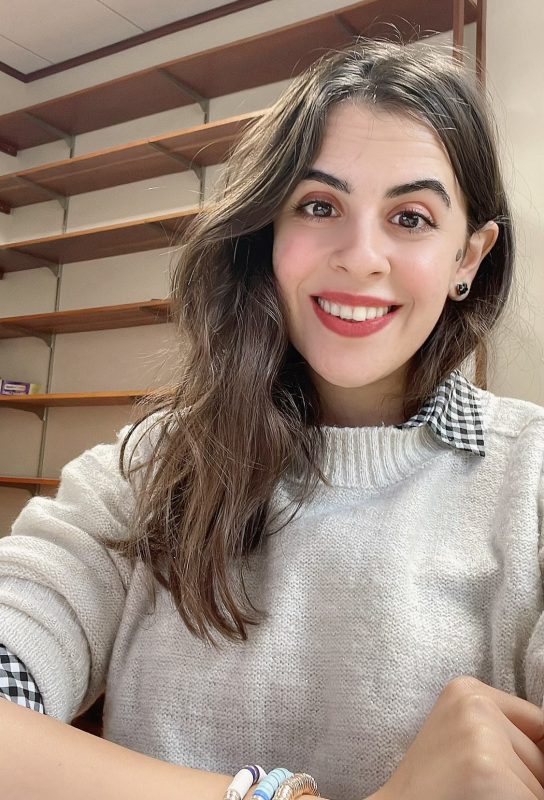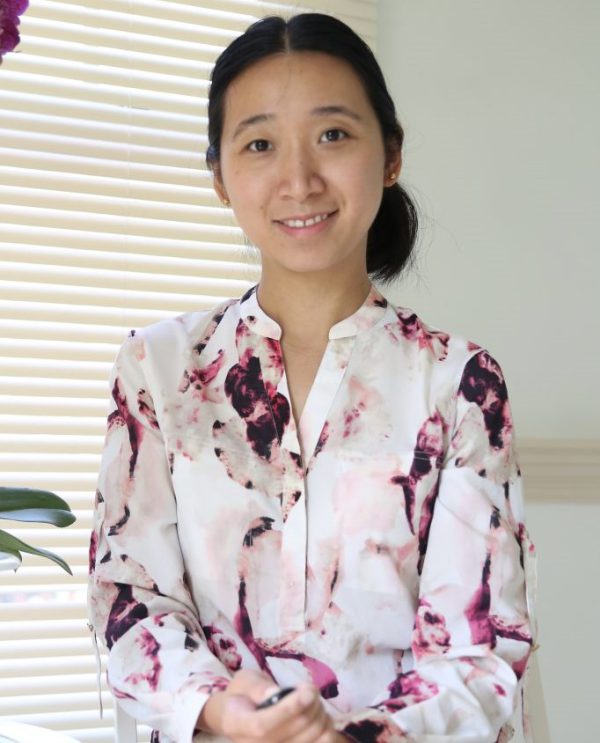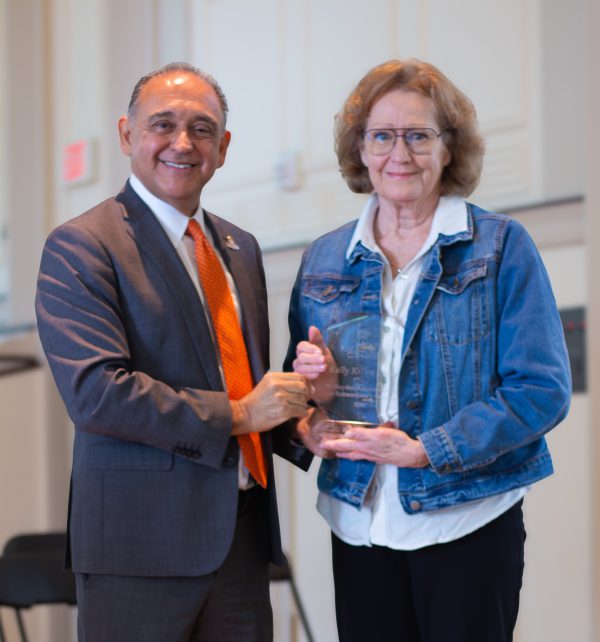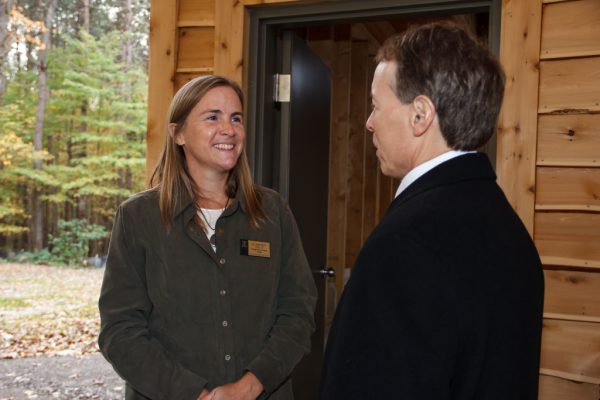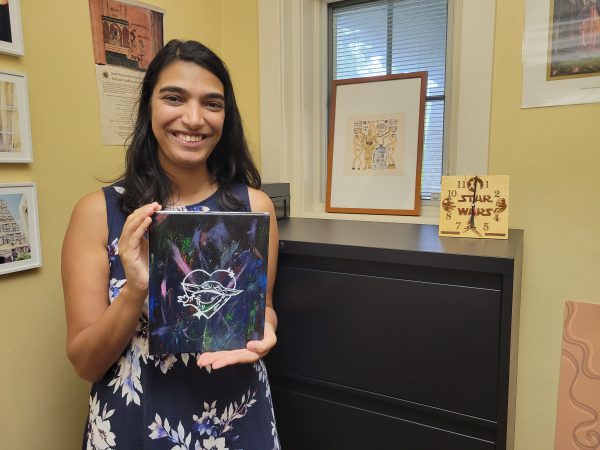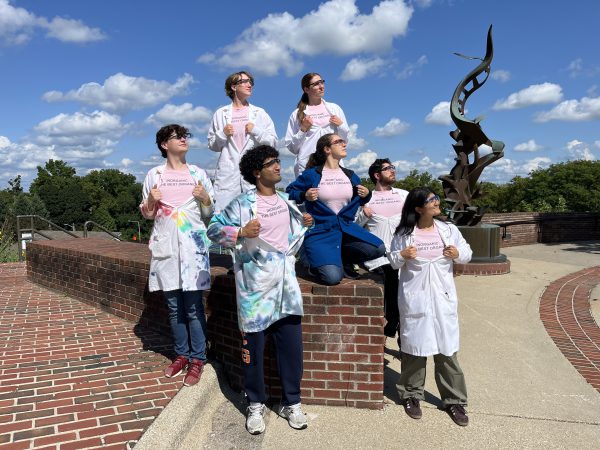This story was written by Kalamazoo College Director of Corporate and Foundation Relations Maria Newhouse.
Kalamazoo College is taking a major step toward providing equal access for talented, first-generation students from South Texas through a new $250,000 endowed fund created in collaboration with Toyota Motor North America. The College has established the Toyota Success Fund to provide critical financial support to these students, helping remove barriers to pursuing higher education. This fund represents an important collaboration between K and Toyota North America, united in their commitment to opening doors for underrepresented students with significant potential.
Over the past few years, the College has seen a substantial increase in applications and enrollment from students in South Texas, particularly from the IDEA schools in the region, many of whom are the first in their families to attend college. However, national and local data has shown that retention rates for first-generation students—who made up 30% of the incoming class at the College in 2023—are lower than that of their peers, highlighting the need for targeted interventions and support systems.
“At Kalamazoo College, we are committed to providing a transformative liberal arts experience that prepares our students to understand, thrive in, and lead our complex world,” said President Jorge G. Gonzalez. “This endowment—and others like it—will ensure that our doors remain open to students from all walks of life, regardless of socioeconomic background.”
The Toyota Success Fund stems from a pilot program begun in 2019. Since inception, the program has supported three cohorts of Toyota Scholars from South Texas. Toyota’s North American headquarters are located in Plano, Texas. The pilot program provided important insights from students about unexpected hurdles to their success.
“The pandemic, which occurred during the pilot program, really highlighted some previously unseen needs,” said Bob Batsell, a Kalamazoo College psychology professor from South Texas who mentored many of the Toyota Scholars. “Unfortunately, the College wasn’t prepared initially. No one was. Watching the pilot program evolve to truly listen and support students was vital to relieving at least some of their financial burdens so they could focus on being students.”
Toyota Scholars have had the opportunity to meet with their mentors and program staff during their time at K and provide insights and feedback. Based on this feedback, the newly established Toyota Success Fund will offer health insurance and book stipends to qualifying, first-generation students from Texas beginning in fall 2025—forms of aid not covered by other financial assistance yet identified as crucial for student success.
“This program has really benefited me,” shared Tracy Galeana, a member of the Class of 2025. “Without it, I don’t even think I’d be in college.” Galeana, an art history major, recently accepted an internship at an art museum in Brownsville, Texas—an internship that her Toyota Scholars scholarship will help fund.
Classmate Caleb Allen, a history major, echoed Galeana’s experience. “I don’t think I would have been able to afford this school without it,” said Allen, who is also heavily involved in the College’s theatre department. Allen plans to write an original script to present at a theatre festival this fall before staging a reading as part of his Senior Integrated Project (SIP) in 2025.
“The Toyota Scholars program definitely helped eliminate economic stress,” said Luis Ayala ’24, an avid race fan and recent graduate, who joined a local Porsche racing league in Texas this summer. He was recently hired as an ophthalmic technician at a retina clinic in Austin where he will be training to become a retinal angiographer. Of his time at K as a Toyota Scholar he said, “I am grateful for everything the program offered. I really was able to have a smooth college experience thanks to this scholarship program.”
The endowment is part of Kalamazoo College’s broader efforts to create a more inclusive and supportive environment for students from diverse backgrounds, which is also a priority for Toyota North America. “The Toyota Success Fund at Kalamazoo College aligns perfectly with our core values,” said D’Juan Randolph, manager, Multicultural Business Alliance and Strategy, TMNA. “We know that an investment in students today is an investment in the diverse leaders and problem-solvers of tomorrow, and we are excited to see what these students accomplish.”
The current scholarship is just the beginning. Leveraging funds raised during the College’s ongoing $190 million comprehensive fundraising effort, the Brighter Light Campaign, Kalamazoo College will continue building on the pilot program’s success to expand support for first-generation students. “The Toyota Success Fund lays a powerful foundation, but our vision extends much further,” Gonzalez said. “We will continue to build an increasingly robust support system so that a Kalamazoo College education is accessible to any qualified student who desires this transformative experience, regardless of financial means.”










